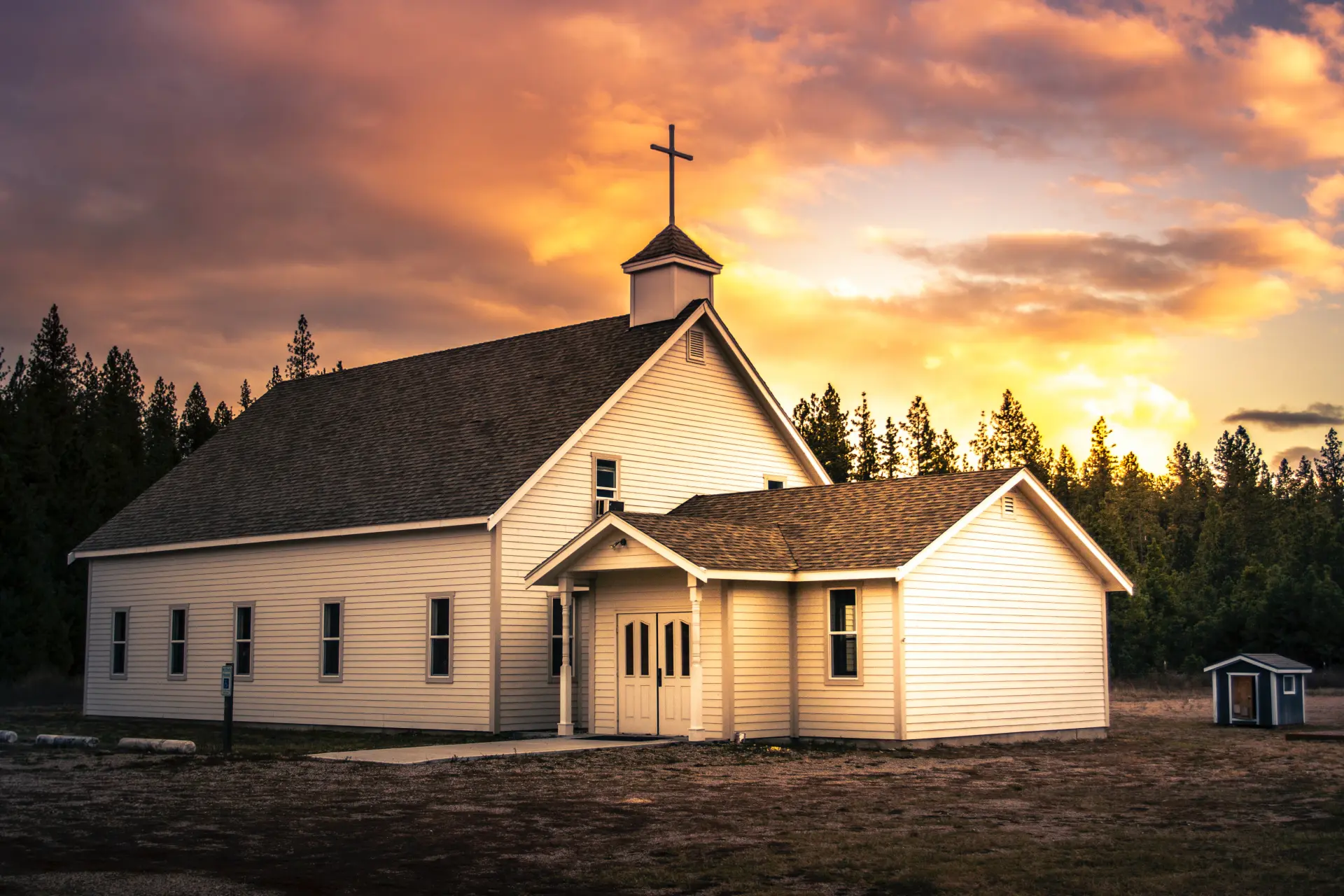As a New Christian – How do we Live?
Coming to faith, trusting in God as your savior and Lord is often an emotional event – a transformational event. We have chosen to trust in the finished work of Christ and the forgiveness he provides. We have gone from a child of wrath to a child of God. Even if there was no euphoria associated with your conversion, you can be assured you are a new creation – as Paul says in 2 Corinthians 5:17:
What you will find in the days and weeks after you have been saved is that you will be drawn into some of your old life mistakes and failures. This is normal, but it might have you asking – now what? Isn’t this Christian life supposed to be better than this?
What Comes Next? Growing Your Faith
Deciding to follow Jesus and accepting Him as your Savior is like planting a small, delicate seed. This important step is just the beginning. Your new faith, like a young plant, needs care and the right environment to grow strong. So, what should you do next? How do you help your faith grow into a strong tree with deep roots and wide branches?
The Bible is key in this journey. It’s God’s living Word that tells about His relationship with people, guides us, and reveals His heart. To deepen your understanding of and relationship with God, it’s essential to read the Bible. The Psalmist says in Psalm 119:105, “Your word is a lamp to my feet and a light to my path.” Regularly reading and meditating on the Bible helps light your way, giving direction and insight for life’s challenges. Paul says this in 2 Timothy 3:16-17:
Prayer is equally vital forming the very backbone of your relationship with God. It’s not just a ritual or scheduled dialogue, but an ongoing, continuous conversation with God. Paul, in 1 Thessalonians 5:16-18, tells us to “Rejoice always, pray without ceasing, give thanks in all circumstances.” Paul, who faced many trials (2 Corinthians 11:23-27), prayed constantly, in good and bad times. For us, prayer is our direct link to the heart of God, where we can share our thanks, hopes, confessions, and requests, just like Paul did.
We’re still human, and we’ll make mistakes. Sometimes they’re small, sometimes big. We live in a world where sin prevails, and our own nature leads us to do things we don’t want. Paul talks about this struggle in Romans 7:13-24, saying he does the wrong thing even when he knows what’s right. Sin can make us feel distant from God, like we’re drifting without direction. How do we get back the close relationship with God we had before sinning? John gives a simple and powerful answer: confession. As 1 John 1:9 tells us, confessing our sins is the way to restore our relationship with God: “If we confess our sins, He is faithful and just to forgive us our sins and to cleanse us from all unrighteousness.”
Service and Community in Christianity
Growing personally and spending time with the Bible are important, but Christianity is also about sharing faith with others. This is where being part of a community matters. Joining a church or a Bible study group offers more than just companionship. These groups are places for growing together, sharing experiences, and learning from other believers. The early Christians knew this, as seen in Acts 2:42, where they “devoted themselves to the apostles’ teaching and to fellowship, to the breaking of bread and to prayer.”

Find a good, Bible believing church that preaches God’s word. A good church will offer you opportunities to get plugged in and participate in the body of Christ. It should focus on glorifying God and challenging followers to live a life that conforms to that of Christ’s. Ask for the churches statements of faith. Make sure they affirm the inerrancy of the Bible, the deity of Christ and the Triune God head.
Once you get involved in a body of believers look to ways you can be active in the church. Service is a key part of your faith. James tells us in James 2:17, “faith by itself, if it is not accompanied by action, is dead.” Serving others isn’t about big actions; it’s about small, sincere acts that show God’s love. This could be helping a neighbor, volunteering at shelters, or simply listening to someone in need. These actions put your faith into practice, making a real difference. Remember, service comes from faith, not the other way around. You can’t earn your way into God’s favor.
Being a Christian means constantly growing spiritually, becoming more like Christ. Paul describes this in 2 Corinthians 3:18: “And we all, with unveiled face, beholding the glory of the Lord, are being transformed into the same image from one degree of glory to another. For this comes from the Lord who is the Spirit.” This ongoing transformation is what the Christian journey is all about.
Challenges in the Christian Faith and Overcoming Them
Following Christ is rewarding, but it comes with challenges. Just like a ship faces storms at sea, a Christian encounters difficulty in their spiritual journey. It’s through these challenges that our faith grows stronger as we rely on Him to get us through.
One common challenge is dealing with doubts. Doubting is normal in any deep relationship, including with God. When Thomas doubted Jesus’ Resurrection, Jesus didn’t scold him. Instead, He showed Thomas His wounds, leading Thomas to believe (John 20:27-28). Another time, a father expressed mixed feelings of belief and doubt to Jesus about his belief Jesus could heal his child. He said, “I do believe; help me overcome my unbelief!” (Mark 9:24). When you have doubts, don’t hide them. Look for answers, talk about them, and remember that questions can make your faith stronger.
External pressures are another challenge. Friends or family might not understand your faith, or society may be at odds against Christian values. Jesus said, “If the world hates you, keep in mind that it hated me first” (John 15:18). Stay strong by leaning on the Bible, the Christian community, regular church attendance, and prayer. Paul reminds us in Romans 8:38-39 that nothing can separate us from God’s love.
Sometimes, you might feel like you’re not growing spiritually. This is normal, but don’t be fooled into thinking you’ve reached the peak of your faith. Paul says in Philippians 3:12-14 to keep striving forward. Keep challenging yourself: join a Bible study, volunteer, start a discipleship, or spend more time in prayer and reading the Bible.
The Holy Spirit plays a crucial role in facing these challenges. As believers, we’re not alone. The Holy Spirit guides, comforts, and gives wisdom. This divine Helper is active in our lives, shaping and strengthening our faith.
Trials are part of the Christian journey. They might be tough, but they’re chances for growth. They refine us, like fire purifies gold, leading us to a deeper understanding of God’s love and grace.
Having an accountability friend
God never intended us to do the Christian life alone. We grow best shoulder to shoulder. An accountability friend is a brother or sister who knows your real life; not the polished version. Someone who will ask hard questions about prayer, purity, pride, money, marriage, and mission. They will pray with you and point you back to Scripture. “Iron sharpens iron, and one man sharpens another” (Proverbs 27:17). Look for a mature believer of the same gender who is honest, biblically grounded, and dependable. Set a simple rhythm – weekly or biweekly check‑ins. Try a short Bible reading you both discuss, specific prayer requests, and keep clear goals. Friends like this keep confidences. They speak truth in love. They celebrate wins. Accountability sometimes means dealing with failures – if there is a fall, practice Galatians 6:1 – restore gently, watch yourself, and run to Christ together.
This kind of friendship guards the heart against hidden sin and spiritual drift. James urges us to “confess your sins to one another and pray for one another, that you may be healed” (James 5:16). Accountability does not replace personal responsibility; it strengthens it. It also guards against false assurance by testing our profession with practice and support one another in the call to perseverance. Over time, you will notice real fruit – more humility, quicker repentance, deeper joy in obedience, and a growing hatred of sin. The goal is to be walking in the light with a fellow pilgrim so that both of you press on toward greater Christlikeness.
Sharing your faith
New life in Christ naturally overflows into a desire to share what Jesus to others. Jesus said, “You will be my witnesses” (Acts 1:8). Start where you are; family, neighbors, coworkers and friends. Pray for open doors and courage, then speak with clarity and kindness. Keep the gospel simple and biblical: God is holy; we have sinned; Christ died for our sins and rose again; forgiveness and new life are offered by grace through faith in Him alone. Use Scripture; Romans 3:23; 6:23; 5:8; 10:9‑10; John 3:16; 1 Corinthians 15:3‑4. Share your testimony briefly. There is power in the story of who you were, how Christ saved you, and what He is doing now. Ask questions, listen well, and trust the Spirit to convict and draw. Results belong to God; faithfulness belongs to us.
Check out our article on How Do I Share My Faith (coming soon)
Live for Christ Daily
We are saved by grace, as Paul urges in Ephesians we must live worthy of that calling. Fix your eyes on Christ, open your Bible, lift your heart to God in pray, and plug into the church. Try to find a faithful friend who will tell you the truth and live real life along side you. Speak the gospel with courage and compassion to a lost and dying world. Expect trials; expect the Spirit to meet you there. Keep repenting, keep obeying, keep loving people, and keep sowing seed. The old has gone; the new has come. Always trusting that “He who began a good work in you will bring it to completion” (Philippians 1:6).




